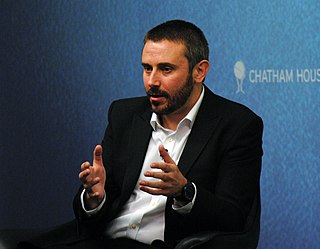A Quote by Erin Cressida Wilson
I needed to enhance the outward threat to Rachel.In the book [Girl on the Train], her inner threat is so strong; the fear of herself and her inability to remember and the false memories. In the film [Girl on the Train]I wanted to increase the exterior threat. So that's why Allison's part was bigger and was an important part of the climax of the film.
Related Quotes
I really needed to dramatize and clarify that Rachel was taking strides towards her own healing and her own sobriety - and that she was actually thoroughly frightened about what she may have done.This was something that was so beautifully done in the book [The Girl on the Train] through inner monologue, but I couldn't just have a whole film filled with inner monologues. So going to Alcoholics Anonymous was a very simple solution to that problem.
I always thought that the location of this film [Girl In The Train] was on the train and inside her imagination, and her loneliness and her gaze out the window.Although it was set in England, it didn't feel to me like an overly English book. In terms of the use of cultural references, it was not extreme, so it was very simple to go from England to America in the adaptation.
The threat from Iran is, of course, their stated objective to destroy our strong ally Israel. That's a threat, a serious threat. It's a threat to world peace; it's a threat, in essence, to a strong alliance. I made it clear, I'll make it clear again, that we will use military might to protect our ally, Israel.
It's one of those things where the book has all these stars that burn really bright that you hang onto and they're all saying, 'This is The Girl on the Train experience.' All those stars or hooks needed to be in the film, but sometimes they needed to be a bit different. It's important when adapting such a popular book to hit all those points but also break out expectations without slaughtering the book. And that was, for me, the joy of adapting the book.
I think everyone should read The Girl on The Train, especially if they loved Gone Girl. It's about Rachel, a girl who sees a couple on her commute. Then one day she sees one of the people from the couple kiss another person. The next day they go missing. The story is told by 3 different perspectives, all characters you absolutely can't trust. It's an insane psychological thriller that's seriously addicting and the kind of book you can't put down.
Well, she's so alive, Julia Child. And Margaret is so - is so designed. She's so intent upon making her point. That's the most important thing, is that she win the argument, and there is nothing that stands in the way of that train, you know. But Julia's just alive in front of you. That's part of why people loved her. They lived it with her. They breathed it with her. And the mistakes were all part of it.
I wanted to keep the complexity of the female experience in the film as much as it is in the book, and the subject of not wanting a child is a very interesting subject, one that's not dealt with very much actually.However that complexity was not serving the story of what became the film [The Girl on the Train].































